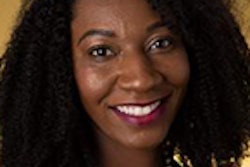Drs. Keeanga Yamahtta Taylor, Carl Hart and John Eric Williams are Black academics who recently spoke out against national and global White supremacy, capitalism, and homophobia, and received death threats and backlash for their comments. But, being persecuted by the media and society is only one of the repercussions Black Studies faculty experience when they speak out on social and political issues. Others include being terrorized by our own university administration, being sold out by other Black Studies faculty, and being targeted by students who don’t agree with the material taught in class.
In the eyes of the university, it’s one thing to critique racism and white supremacy in society; but, another to expose the racism on our own college campuses.
Even though its origins date back to Ancient Egypt, Black Studies didn’t officially become a discipline in the university until 1968 when students, faculty, and community members at San Francisco State University went on a five-month strike demanding Black Studies and Ethnic Studies be added to the curriculum. This strike led to other protests across the country where Black Studies was also demanded such as California State University, Northridge; Cornell University; University of Wisconsin; etc. Thus, Black Studies and Ethnic Studies are the only disciplines in the university birthed out of protest.
Although St. Clair Drake stated that Black Studies was forced to become depoliticized and deradicalized when it was institutionalized in the university, Black Studies departments and programs are still where some of the most radical faculty and students can be found in academia today. Consequently, the faculty who teach in Black Studies consider themselves to be scholar/activists who consciously train their students to be intellectuals, agents of social change, and leaders in the community. Black Studies faculty also lead by example and are not the ones standing around waiting for change to happen; instead, we’re the ones actively fighting for change to occur.
Because most Black Studies departments exist at predominantly White institutions (PWIs), we operate behind enemy lines. In fact, many university administrators continue to embrace racism, White supremacy, White privilege, etc., exactly what Black Studies fights against. Of course, Black Studies faculty make public statements regarding the local, national, and international state of the world, especially highlighting its impact on African/Black people; but, Black Studies faculty also call out our own universities for their contributions to oppression. However, this automatically makes faculty in Black Studies enemies of the state and targets of the universities where they reside.
Honestly, administrators at PWIs merely tolerate Black Studies at their universities, and that’s only if we stay on the path they’ve prescribed for us. In fact, there was a White administrator I worked with previously who called himself/herself the overseer of our Black Studies Department.
Often, administrators wish they could eliminate Black Studies at their universities, and have even taken steps to do so despite provisions prohibiting it. Luckily, they can’t do it outright because it’s too obvious, and would expose their true feelings about African/Black people. Therefore, they do it in more covert way such as using academic terrorism.














